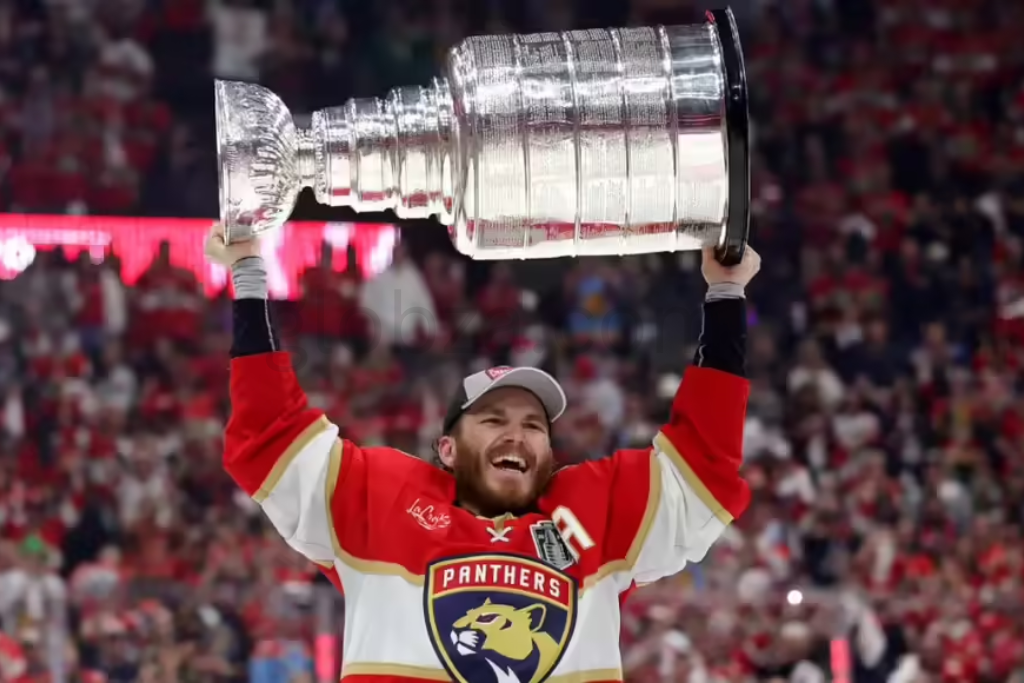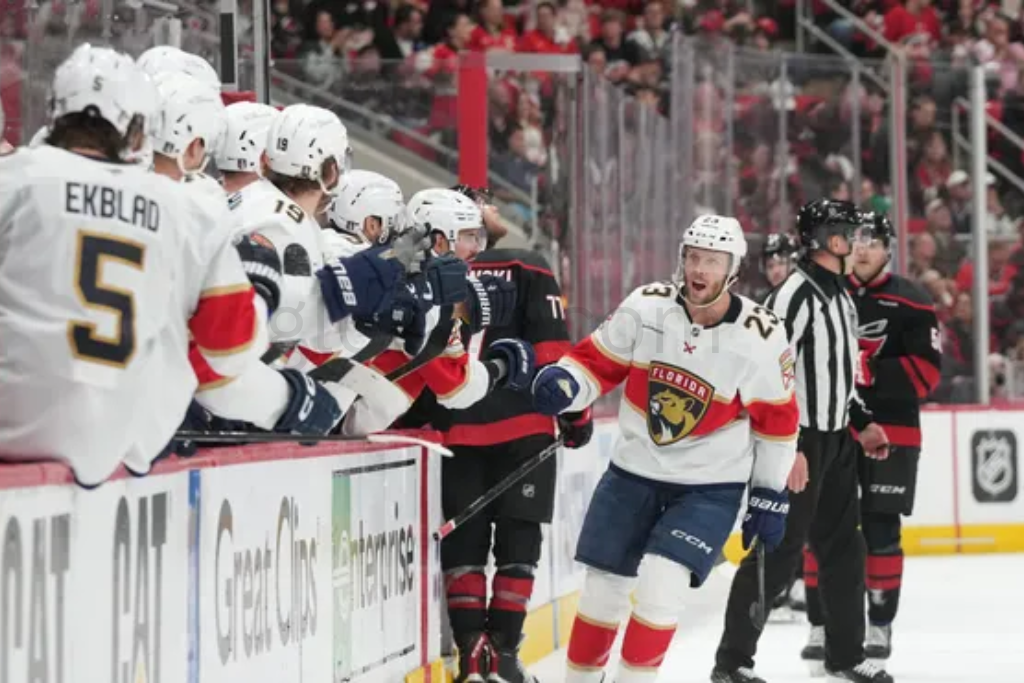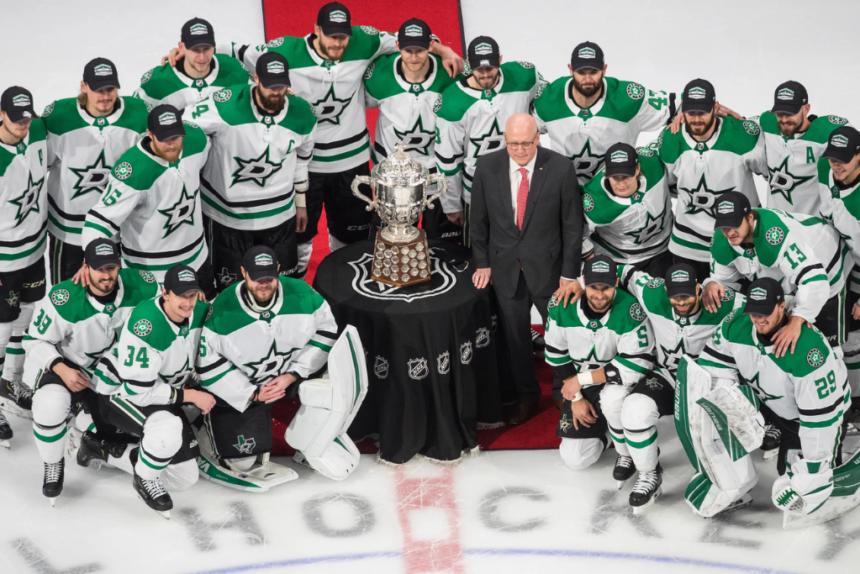1. Stanley Cup Finals: The Pinnacle of Ice Hockey Glory
The Stanley Cup Finals represent not only the crowning moment of the National Hockey League (NHL) season but also a deeply rooted tradition in North American sports culture. As the final showdown of the NHL playoffs, this series determines which team earns the honor of lifting the Stanley Cup — the oldest professional sports trophy in North America, first awarded in 1893. The Finals bring together the top teams from the Eastern and Western Conferences, but what sets the series apart is more than just its competitive edge — it’s the drama, legacy, and lore surrounding it.
Every game in the Stanley Cup Finals is a spectacle of physical endurance, strategic brilliance, and raw emotion. It’s not uncommon for players to push through fractured bones, deep lacerations, and exhaustion in pursuit of this cherished trophy. The level of sacrifice is unparalleled in many other sports. The Cup itself is iconic, not just in appearance but in tradition. Each player on the winning team gets to spend a day with the Cup, creating personal memories that span continents and generations. It’s a moving symbol of hockey’s reach and personal impact.
Television ratings for the Stanley Cup Finals surge annually, drawing millions of viewers not just from Canada and the U.S. but from across the globe. The Finals have become a cultural event, with pre-game shows, post-game analyses, fan celebrations, and social media buzzing with highlights and controversies. The intensity of the Finals often results in iconic moments: last-minute goals, dramatic overtime wins, and unexpected heroes rising to the occasion. These stories are etched in the memory of fans and become part of the sport’s oral history.
“Every kid dreams of lifting the Stanley Cup. There’s no greater honor in our game.”
— Sidney Crosby, 3-time Stanley Cup Champion

2. Historic Showdowns in the Battle for the Cup
The Stanley Cup Finals have delivered some of the most memorable moments in sports history. Whether it’s the dominance of dynasties like the Montreal Canadiens of the 1970s or the miraculous runs of underdog teams, each era of the Finals has left a lasting imprint. Perhaps one of the most famous matchups occurred in 1994 when the New York Rangers ended a 54-year championship drought. The series went to Game 7, culminating in an unforgettable Madison Square Garden celebration.
Then there’s the 2010 Chicago Blackhawks, who began a modern dynasty by winning their first Cup in 49 years. Their overtime victory in Game 6 against the Philadelphia Flyers was iconic — few can forget Patrick Kane’s bewildered celebration after scoring the winning goal that no one else initially saw cross the line.
Go back even further, and you’ll find legends like Maurice “Rocket” Richard or Bobby Orr redefining the game. Orr’s airborne goal in 1970 during the Finals has become one of hockey’s most enduring images. These moments aren’t just replayed in highlight reels — they’re woven into the cultural fabric of the cities and teams involved.
The Finals also shine when they stretch into seven-game sagas, where physical fatigue meets mental warfare. The 2009 Finals between the Pittsburgh Penguins and Detroit Red Wings serve as an example. The series went the distance, ending with Max Talbot’s clutch goals and Marc-André Fleury’s last-second save.
“There’s something about Game 7 of the Stanley Cup Finals. You’re not just playing a game — you’re writing history.”
— Wayne Gretzky
3. Playoff Legends and MVPs Who Shaped the Finals
When the lights shine brightest in the Stanley Cup Finals, it’s often the superstars — and sometimes the unheralded players — who rise above the rest to define the series. The Conn Smythe Trophy, awarded to the playoff MVP, often reflects both brilliance and grit. Wayne Gretzky, Mario Lemieux, Jonathan Toews, and Martin Brodeur are just a few legendary names associated with this prestigious award.
But not all heroes are household names. Consider Jean-Sébastien Giguère’s performance in 2003. Although the Anaheim Ducks lost the series to the New Jersey Devils, Giguère’s stellar goaltending throughout the playoffs earned him the Conn Smythe — a rare honor for a player on the losing team. His performance remains one of the greatest goaltending displays in Finals history.
In contrast, Sidney Crosby’s leadership during the 2016 and 2017 back-to-back Stanley Cup wins for the Penguins showcased how consistency and experience shape a champion. His ability to deliver in key moments while elevating his teammates set a modern gold standard for playoff performance.
Goaltenders, in particular, have often stolen the show in the Stanley Cup Finals. Think of Tim Thomas’s 2011 heroics, where he nearly single-handedly delivered the Cup to the Boston Bruins, or Andrei Vasilevskiy’s back-to-back shutouts to clinch titles for the Tampa Bay Lightning.
“You win the Cup with your heart, not just your hands.”
— Jonathan Toews
4. Coaching Tactics That Win Stanley Cup Titles
Behind every Stanley Cup Finals-winning team stands a tactician pulling the strings. Coaching during the Stanley Cup Finals isn’t just about line changes — it’s a battle of systems, psychological warfare, and adaptability. Coaches like Scotty Bowman, Joel Quenneville, and Jon Cooper exemplify the leadership required to guide a team through the crucible of playoff hockey.
Preparation for the Stanley Cup Finals starts long before Game 1. Coaches analyze opponent tendencies, power-play patterns, and defensive weaknesses. In-game, every shift matters. Line-matching becomes a chess game, where home-ice advantage plays a critical role in dictating tempo and strategy.
Systems like the neutral zone trap, the 1-3-1 forecheck, or aggressive penalty killing are tailored to counter specific opponents. A great example is how Barry Trotz led the Washington Capitals to their 2018 Stanley Cup victory by instituting a structured, disciplined approach that contained elite opponents like the Tampa Bay Lightning and Vegas Golden Knights.
In addition to tactics, emotional regulation is vital. Coaches must manage locker room dynamics, keep spirits high, and instill confidence during adversity. A single speech — like Herb Brooks’ legendary “Miracle” pep talk — can ignite a fire that turns series tides.
“Good coaches build systems. Great ones build belief.”
— Mike Babcock

5. Fans, Cities, and the Spirit of the Stanley Cup Final
Ask any lifelong hockey fan, and they’ll tell you that the Stanley Cup Finals are more than just games — they’re once-in-a-lifetime experiences. Whether watching from the rink or glued to the television, fans invest emotionally, financially, and spiritually in their team’s journey to the Cup. The Finals turn casual supporters into diehard believers, entire cities into rally zones, and arenas into cauldrons of deafening noise.
Tailgate parties, watch parties, lucky jerseys, playoff beards — all these rituals are part of the Stanley Cup Finals atmosphere. Cities often host outdoor screenings, and businesses get wrapped in team banners. The communal celebration (or heartbreak) fosters deep cultural ties.
The Stanley Cup Playoffs also bring together generations. Grandparents who saw legends of old, parents who watched the 90s dynasties, and kids seeing their heroes for the first time — all unite during the Finals. It’s a time when rivalries are friendly and the passion is unfiltered.
Moreover, social media has amplified fan engagement. Tweets, memes, real-time analysis, and TikTok celebrations extend the Finals beyond the rink. Teams use digital platforms to build hype, and fans keep the conversation alive across continents.
“The Stanley Cup Finals aren’t just for players — they’re for everyone who ever dared to believe.”
— Fan banner spotted at Game 6, 2022 Finals




